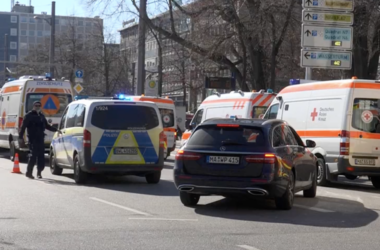The European Union’s attempts to compensate for the reduction in U.S. aid to Ukraine are facing serious difficulties. According to The New York Times, European Commission President Ursula von der Leyen’s plan for Europe’s rearmament has not gained widespread support among EU leaders.
Europe is facing a triple challenge: lack of unity, insufficient funding, and increasing pressure from Donald Trump’s administration. The U.S. is demanding that European countries take greater responsibility for their own security and support for Ukraine. However, despite strong rhetoric, implementing these plans has proven difficult.
Financial disagreements have become a major obstacle. The Netherlands and several other countries are unwilling to increase collective debt for defense purposes. Italy and Spain found von der Leyen’s rearmament rhetoric too aggressive, leading to the initiative being renamed “Readiness 2030.” However, even in its revised form, the project requires significant investments that many countries are reluctant to provide.
EU proposals to increase military aid to Ukraine have also met resistance. EU foreign policy chief Kaja Kallas proposed allocating up to €40 billion through a fixed percentage levy on national incomes, but this initiative failed. A backup plan to allocate €5 billion for the purchase of artillery shells was blocked by Italy, Slovakia, and even France. Leaders insisted that aid to Ukraine remain voluntary.
Debates over defense strategy continue within Europe itself. France is pushing for new defense loans to be used primarily for purchasing European-made weapons, limiting the involvement of American and British manufacturers. Paris is also blocking EU efforts to develop a defense agreement with the UK due to disagreements over other issues, such as fishing rights.
Uncertainty surrounding U.S. policy adds further complications. Trump has repeatedly hinted that NATO support depends on European defense spending levels. He has also proposed raising the minimum defense spending requirement for alliance members to 5% of GDP, significantly higher than current levels.
Against this backdrop, the UK and France are discussing the creation of European security forces that could be deployed in Ukraine after a potential peace settlement. However, the project remains in the discussion stage, as most EU countries have not expressed readiness to participate.
Despite Europe’s ambitions to take security into its own hands, there is no unified vision within the bloc on how to achieve this. For now, EU countries continue to debate how they can persuade Trump to maintain NATO support and prevent the weakening of the transatlantic alliance.




